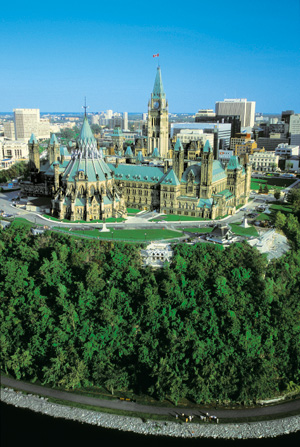
Freedom of religion in Canada is a constitutionally protected right, allowing believers the freedom to assemble and worship without limitation or interference.
Constitutional rights
The “Fundamental Freedoms” section of the Canadian Charter of Rights and Freedoms states:
2. Everyone has the following fundamental freedoms:
(a) freedom of conscience and religion;
(b) freedom of thought, belief, opinion and expression, including freedom of the press and other media of communication;
(c) freedom of peaceful assembly; and
(d) freedom of association.
Canadians are therefore free to have their own beliefs and opinions, are free to practise religion or refrain, and are free to establish media organizations with or without religious content. Canadian religious institutions generally benefit from charitable organization status, which allows supporters to benefit from tax credits or deductions for their financial contributions.
According to the Charter’s preamble, Canada is founded upon principles that recognize the supremacy of God. This portion of the preamble has not been accorded legal effect in Charter jurisprudence. The constitutional recognition of God has been criticized as conflicting in principle with the fundamental freedom of conscience and religion guaranteed in section 2, as it would disadvantage those who hold nontheistic or polytheistic beliefs, including atheism and Buddhism.
Human rights codes
While religious freedoms are protected from state interference by the Charter, the actions of private individuals are largely governed by the provincial human rights codes. These codes prohibit discrimination in the marketplace, accommodation, and employment on the grounds of a variety of personal characteristics, including religion.
Case law
In 1955, the Supreme Court of Canada ruled in Chaput v. Romain, regarding Jehovah’s Witnesses, that all religions have equal rights, based upon tradition and the rule of law. At the time, no statutes formed the basis for this argument. In the Guibord case in 1874, the Judicial Committee of the Privy Council, at that time the court of last resort for Canada within the British Empire, ruled that the civil courts of Canada have the jurisdiction to resolve disputes between members of a church and the church organization. The basis for the ruling was that churches are required to comply with their own internal rules and laws, and members of the church have the right to be treated in accordance with those internal rules and laws. In the specific point in issue in the Guibord case, the Judicial Committee ruled that the Roman Catholic church in Montreal could not refuse the burial of a deceased member of the church because of his political views.
From Freedom of Religion in Canada (Wikipedia, footnotes omitted)